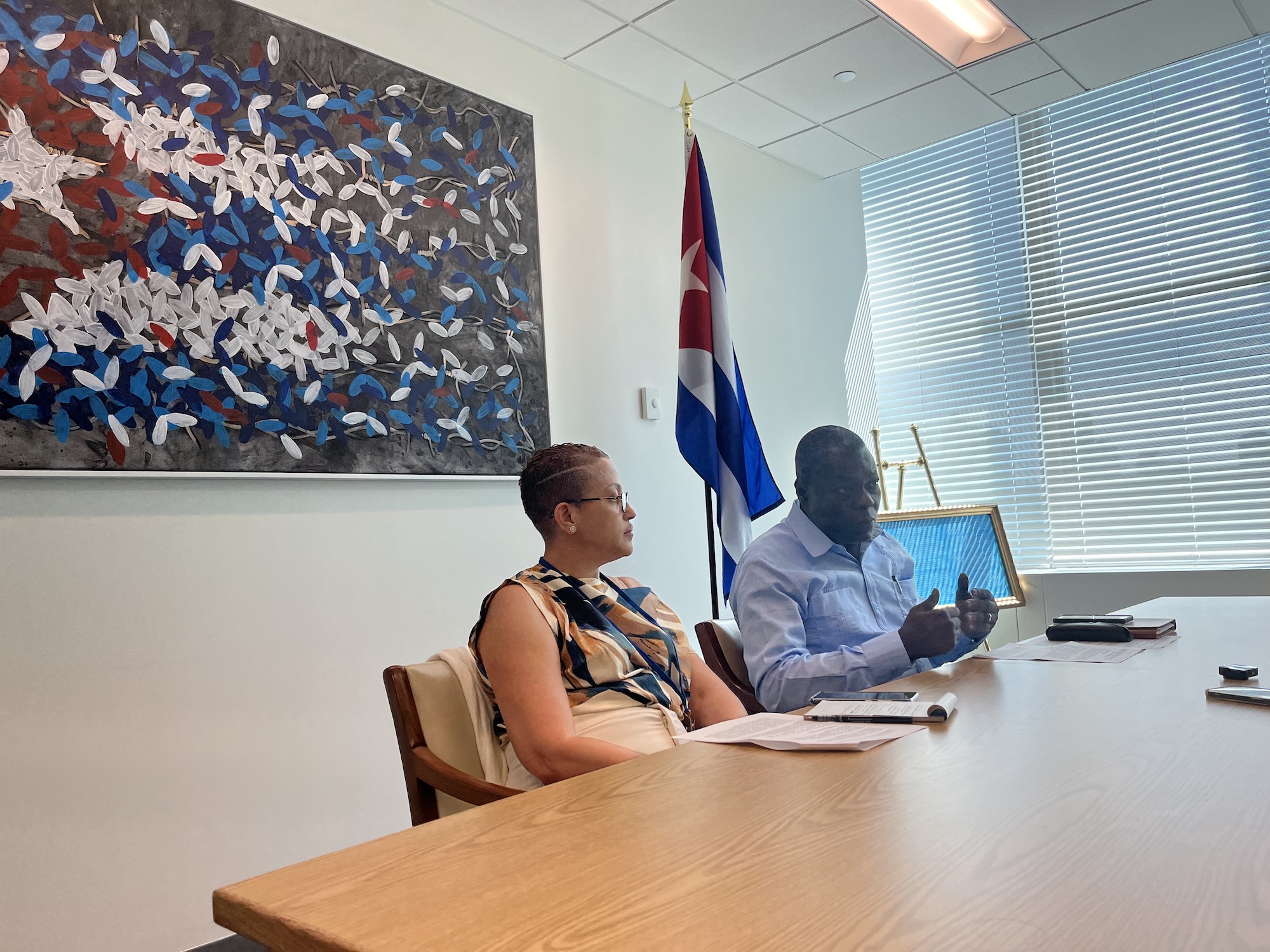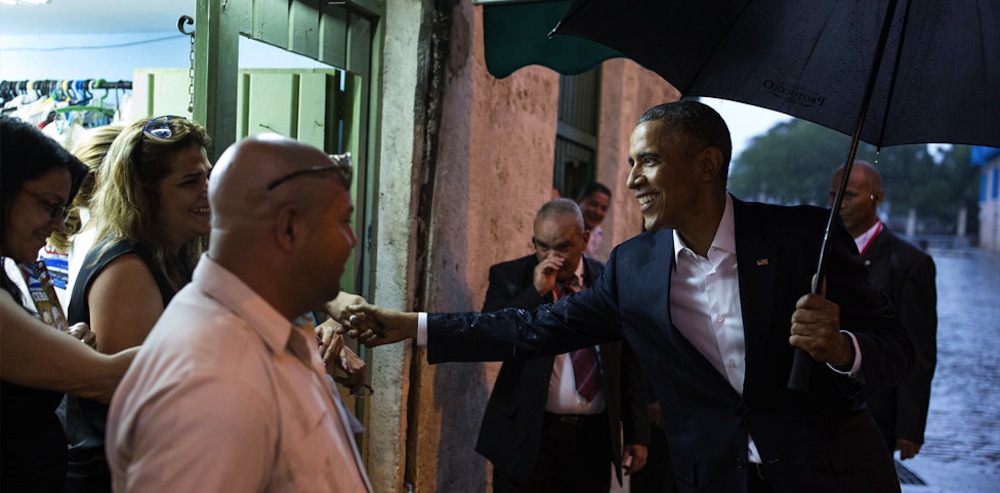Cuba presides over the G77 + China, a coalition of developing countries that aims to create greater joint negotiating capacity within the work of the United Nations. In a few days, from 15 to 16 September, the organization’s summit will be held in Havana, precisely in preparation for the high-level meetings of UNGA78, the General Assembly which opens on the 19th in New York.
Founded by the Non-Aligned Movement in 1964, the G77 now includes as many as 134 countries, a figure that represents 75% of the United Nations members and 80% of the world’s population. His “weight” at the UN is considerable, and in fact the Secretary General of the United Nations, Antonio Guterres, will participate in the summit in Havana.
The Cuban Foreign Minister, Bruno Rodríguez, in announcing Guterres’ participation in the Havana summit on X (formerly known as Twitter), stated that it will be dedicated to “addressing current development challenges and the role of science, technology and innovation”. For his part, Guterres announced that he will “call for using science and technology for good, as well as ensuring that multilateralism benefits all countries.”
#Cuba se honrará en recibir al sec. gral. de ONU, @antonioguterres, en septiembre próximo.
Saludamos la confirmación hoy de su presencia en la Cumbre del G-77 y China, para abordar los “Retos actuales del desarrollo: papel de la ciencia, la tecnología y la innovación”. #CubaG77 pic.twitter.com/G61n82Izto
— Bruno Rodríguez P (@BrunoRguezP) August 31, 2023
On Thursday, Cuba’s permanent representative to the United Nations, Ambassador Pedro Luis Pedroso Cuesta, who chairs the G77 + China, invited journalists to the fifth floor of the Glass Palace for a press conference on the objectives of the summit in Havana.
Arriving in a bare room adorned with the Cuban flag painted on a beautiful picture behind the ambassador, there were very few colleagues, yet the meeting was very interesting, at least for those who wanted to understand Cuban sensitivities regarding the various ongoing crises, while the Caribbean country is still facing the long post-Castro political transition.
Pedro Pedroso Cuesta said that the summit becomes a turning point for defining the strategies of the countries of the “South South”, that developing world which, thanks also to China, will now be able to become independent in the scientific, technological and innovation from certain Northern countries who have instead made them “pay” for this dependence at exorbitant prices.
In the remarks of the Cuban Ambassador, while Xi Jinping’s China appears to be a reliable partner for the countries of the South, ready to share its technologies and help developing countries, the United States and its allies are mainly responsible for the policies that cause immense suffering to the people of poor countries.
The Cuban diplomat stated that the current multidimensional global crisis, with a financial system controlled by a few countries which with an “impossible” credit system keep developing countries in check, has led to an acceleration of debt and therefore of poverty, also leading to food insecurity and a widening the gap between the North and South of the world.

Then Pedroso Cuesta recalled the unilateral coercive measures and illegal blockades, such as the one imposed by the United States government against Cuba for more than 60 years, denouncing that this embargo, aggravated by the unfair inclusion of Cuba in the arbitrary list of states that sponsor terrorism, constitutes the main obstacle to the food security of the Cuban people. The US embargo on Cuba has a devastating impact on all sectors of the life of its population and hinders economic and social development and therefore the implementation of the 2030 Agenda. The blockade seriously, flagrantly and systematically violates the human rights of the Cuban people, including their rights to food and development, insisted Cuba’s mission to the UN.
When a Chinese TV journalist asked the head of the Cuban mission to the UN what he thought of the US technological blockades against many other countries, the diplomat replied: “Preventing South-South countries from equipping themselves with sustainable technology makes vain any attempt to achieve the SDGs 2030 agenda or climate agreements”. Even the effort of the “Future Summit” organized by the UN in 2024 would be useless, according to the Cuban diplomat.
Yet there is some news: the unity demonstrated by the “G77 + China”, according to the Cuban ambassador, is changing the global imbalance. “For the first time I can see presidents of Southern countries speaking to the leaders of the rich North, looking them in the face with a level of transparency and honesty never seen before. It’s no longer like ten or even five years ago, when we always had to accept what they offered to sell us. Countries are tired of seeing their resources stripped away with nothing in return. The scenario has changed everywhere, even in this Glass Palace. In fact, for the first time we see a UN Secretary General attack, with precise details and depth of analysis, the effects of the current financial system”. So is everything already changing this year? The diplomat asks himself, who then slows down: “It’s a complicated process and it will take more time. But the process has been set in motion, and now developing countries will increasingly want to have a say in decisions about the international trade and financial system.”
The dark shadow of Cuba’s relationship with the USA dominated the meeting, with the ambassador continually accusing Washington of having even hindered health aid on the island during the Covid pandemic (“When we called a Swiss company with which we had already had contact to supply us with respirators, we were told that they could no longer accept our orders because the ownership of the company had passed to the Americans…”).
We asked the Cuban diplomat if he had hopes for some change in relations between the two countries, especially in view of the next US presidential elections: “I don’t have any hope that anything will change. The Biden administration has done nothing but continue Trump’s policy, which had dismantled the progress made under Obama. The embargo is dictated by congressional laws and obviously it would take time to change them, but interventions could still be immediately made at executive level to improve relations between the two countries as already happened with the Obama administration. But I have no hope in the current president, who promised during his election campaign that he would return Cuba policy to the pre-Trump years, but has kept none of his promises. Who knows what kind of political upheaval should really take place…”.

At this point the Cuban ambassador explained his idea of what the relationship between the USA and Cuba could be: “During Barack Obama’s administration, Americans began to get to know Cuba and its people, to understand that we are not enemies, but hospitable people ready to collaborate and work together for common goals. There are many things that we can learn from the USA, but also others that Americans can learn from Cuba, in many fields including the cultural one. Just last weekend I went to visit the ‘friendship boat’ located in Connecticut, the ship that transported some Africans who had been enslaved but who managed to free themselves in Cuba and then during their escape, instead of returning to Africa, they arrived in the USA. There is a moving film by Spielberg about this story (“Amistad”), one of the many testimonies of the links between the history of the USA and Cuba. But we have many things in common, even in music, as in literature, just think of Jazz and Hemingway. How many important initiatives we could develop together, especially in the exchange of information between Cuban and American scientists. I believe there would be enormous advantages for both of us, but as for your question, whether I have hope that relations can change soon, unfortunately I have none. I’d love to be wrong, but this is my personal reading of what the situation is like today. Cuba remains open to any dialogue with the USA, provided that it is treated as an equal. We are independent and enjoy the same sovereign rights.”
Does the Cuban president of the G77 have any expectations about the next G20 to be held in India? Are these types of summits still needed?
“The G20, in its participants, shows the global tensions of the moment, they are divided on everything. Furthermore, neither China’s President Xi Jinping nor Russia’s Vladimir Putin will be there. It doesn’t seem to me that the G20 will be able to bring forward any significant innovations. We will follow it, we will see the conclusions but there is no great expectation on solutions that can come from the G20. Instead we need to relaunch the system of international relations, re-establish it on how decisions are made.”

In speeches on technology and innovation, the Cuban ambassador never mentions the weight of private companies, those that move forward – as is happening in the field of Artificial Intelligence – regardless of summits and relations between states. So we asked how Cuba sees the future that comes from the global competitive race between private technology businesses? What can states do to influence it?
“It is certainly a key issue and we will discuss it during the summit. There is no doubt that companies dealing with AI and other technologies are achieving results in a very short time, but it is also true that states can impose legislation internally and even internationally that regulates the sector. These technologies are already instrumental in many ways in development goals, but there is so far a total lack of legislation that can direct these developments. These must happen for the common good and so that the benefits of these technologies are spread everywhere to reach everyone, rather than being concentrated only on the 1% who continue to benefit from 90% of the world’s income.”












